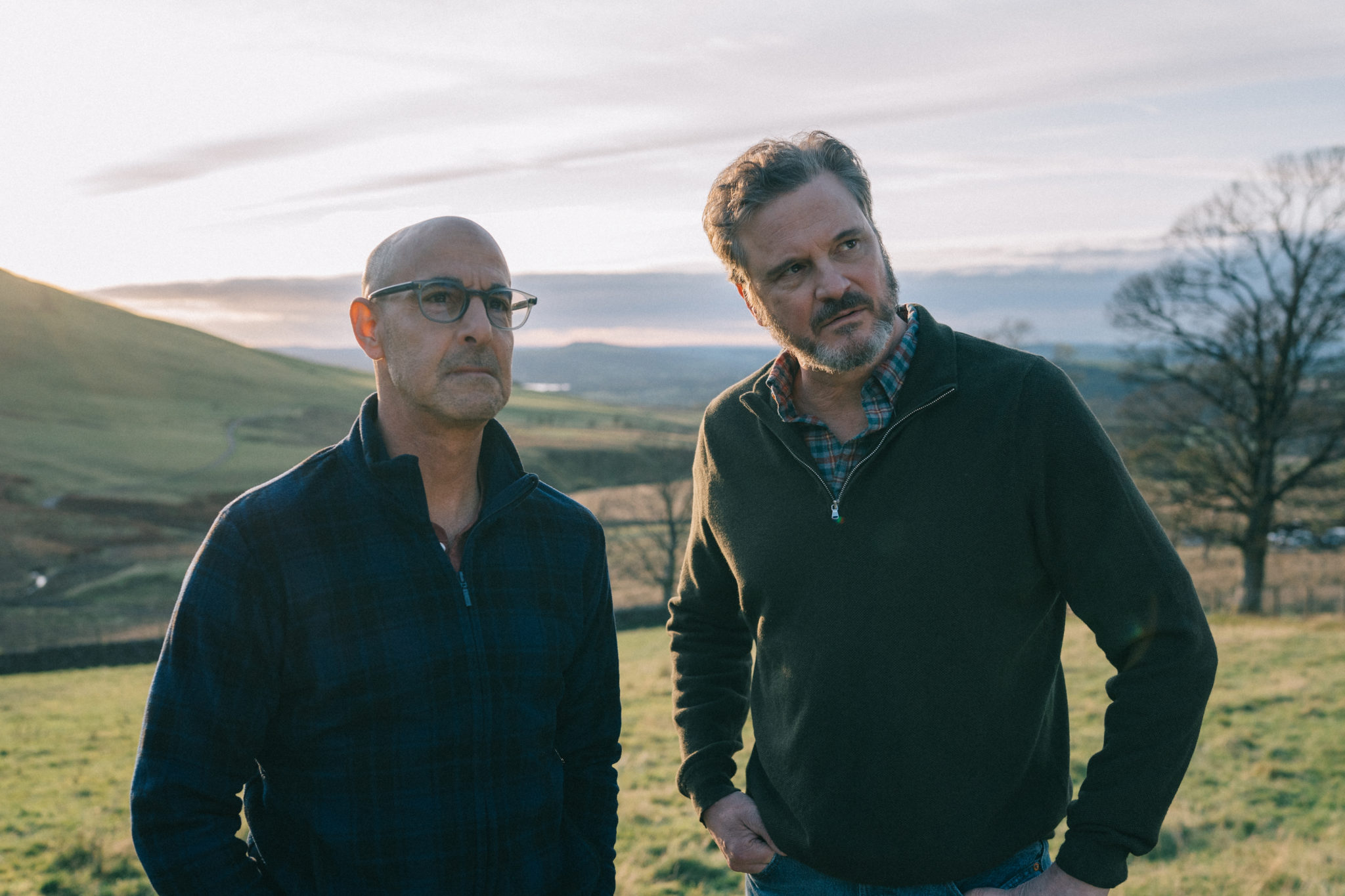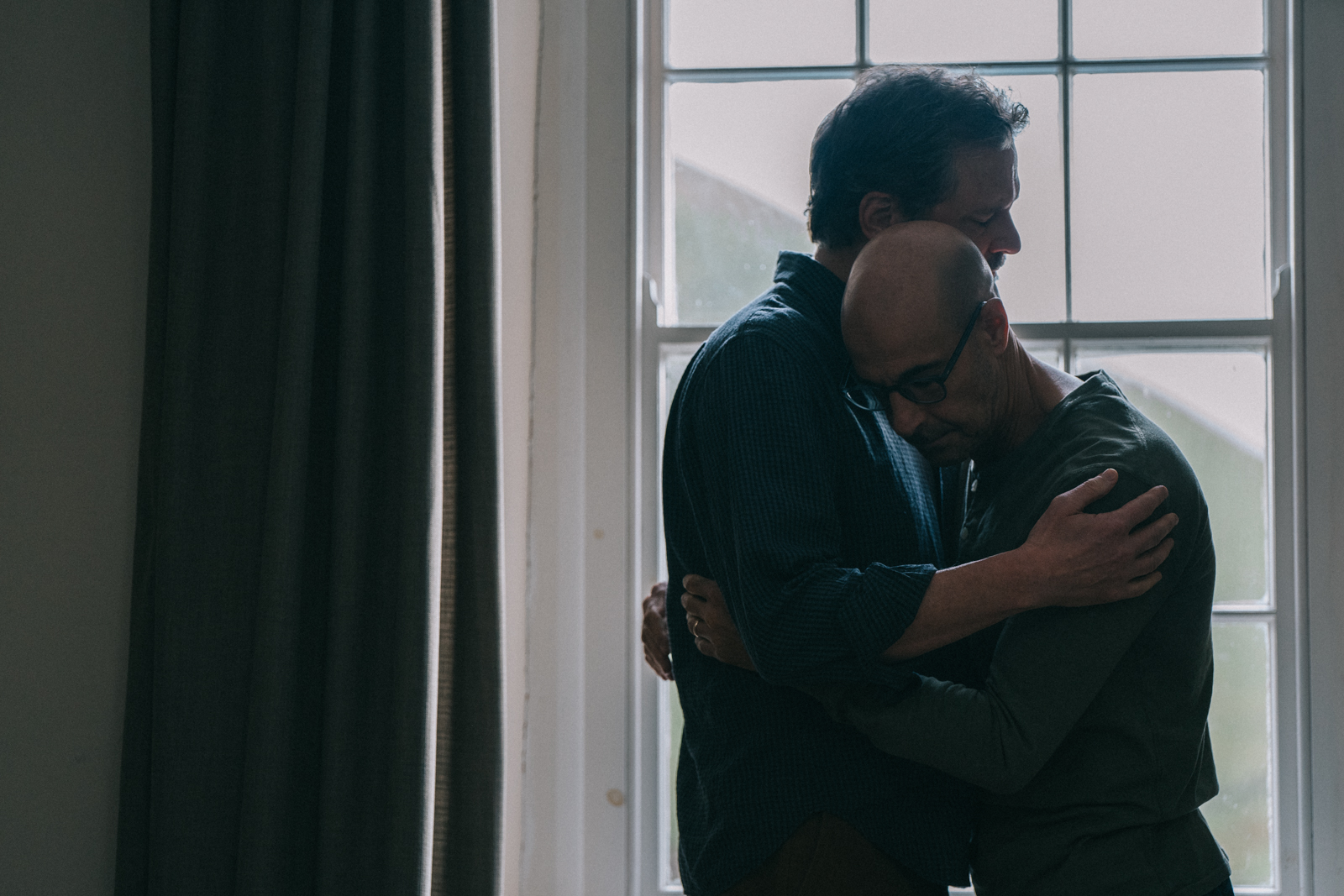- Film And TV
- 25 Jun 21
Harry Macqueen: “If people thought the film was rubbish, but the representation of living with the illness had been accurate, Supernova still would have been a success in my eyes.”

Harry Macqueen – director of the acclaimed new drama 'Supernova' – sits down to discuss making the film, its immersive music, and more.
For the first time in over a year, I’m crying in the cinema. The culprit this time is Harry Macqueen’s Supernova, a passion project that took the young director years to complete. Starring Stanley Tucci and Colin Firth, the film is a poignant and powerful musing on communication, love and life.
Tucci plays Tusker, a writer suffering from early onset dementia. Firth plays Sam, his devoted partner. The couple embark on a road trip – that has different significance for each of them – through the UK’s Lake District. For Tusker, it’s a farewell to things and people he is rapidly forgetting, but for Sam, it’s an effort to prolong Tusker’s memory and reconnect him with his loved ones.
Truly an actor’s film, Supernova is a tour-de-force that makes you want to grab hold of everything beautiful in life – steered by two of Hollywood’s best.
Macqueen is an actor himself, and approached the film (remarkably only his second directorial outing) from the perspective of someone who knows how difficult acting can be.
“It makes the process of directing easier,” he says over Zoom. “There's a trust and a shared language that you have. And knowing firsthand how everyone’s process is different is a big part of a director's job.
“It helps with the writing of it, as well,” he adds. “Character is the first thing for me, and that certainly is helped by having read and performed a lot, and knowing what a complex character reads like.”

Shooting the film was intensely collaborative, so much so that Firth and Tucci decided to switch roles in the early stages of pre-production.
“They came to me with that idea, and they – very kindly – auditioned for me. We sat in a room with the script and they read it both ways round.
“Which is ridiculous, really,” Macqueen laughs, “for them to have done that for someone who is as inexperienced as I am.
“It's very difficult to put your finger on, when it happens, but there was just something about the atmosphere between the couple that changed in a really beautiful way. You can't ignore that, it's magic.”
So Macqueen slightly rewrote the characters, in order to fall into step with what Tucci and Firth were bringing to the table. And watching Supernova, it’s hard to imagine the film any other way. Tucci brings an astonishing levity to Tusker that eschews cheap sentimentality, and Firth plays Sam with a beautiful concerned urgency.
“It was one of the best choices we made in the pre-production process,” Macqueen admits. “It's really important to deal with difficult subject matter in life-affirming ways, and we used that humour and levity for the light and shade.
“Obviously, you don't want a one-dimensional film. And very few of the people I spent a lot of time with, doing my research, were straight up having an awful time, all the time.
“Life finds a way, and there's a lot of humour in illness. An ill person being the life and soul of the party was an interesting dynamic.”
Supernova’s quiet drama is underscored by stunning cinematography, with romantic shots of the natural world, and an understated but fervent score from another film newcomer – composer and singer-songwriter Keaton Henson.
“I love Keaton's work, but had no idea he was trying to step into composing. He made an orchestral work called 'Six Lethargies' and it's amazing, and heartbreaking, and personal.
“It was one of those things where I thought: ‘he'd be perfect for this’. He'd never done it before, but I was absolutely confident that he would be the perfect man for the job.
“Everything he does in his work is so deeply emotional and authentic. It takes a lot out of him to make the music, and I just thought that that was the right kind of person for the story. So we had a long chat on the phone and I sent him the script, and he signed up right away.
“It was a hard task for him, because we wanted something really romantic and mature, but kind of delicate. You don't want to feel like you're manipulating with music, which is very easy to do. You want it to feel like you're accentuating what the characters go through.
“The music speaks for them, when they can't speak. One of the interesting things about Supernova is that it's about communication. They're two people who love each other deeply, but can't be truthful with each other for various reasons.”
The seed for the film was born when Macqueen ran into an old work colleague who had initially been vibrant and full of life, but over the course of the time he spent working with her, became the opposite – due to the fact that she was dealing with dementia.
As such, the ethics of writing the script sensitively were of the utmost importance to Macqueen.
“If people thought the film was rubbish, but the representation of living with the illness had been accurate, Supernova still would have been a success in my eyes,” Macqueen says.
“I was very much making the film for the people I was lucky enough to spend time with. It took me a long time to grapple with the responsibility of doing that. You can't throw yourself in with stuff like this. You have to surrender to the idea that this will be years of your life, because you want to do it well.”

Underneath the narrative about dementia, there’s another parallel question: should people be allowed governance over their own bodies and deaths?
“I have very strong opinions about that conversation,” Macqueen says carefully, “but I didn't necessarily want to make a film about those opinions. I wanted to present a situation that people are put into – in my view, unfairly – because of the state of the law at the moment.
“One of the reasons the film is open-ended is that I don't think there is a neat answer to those enormously difficult questions. And to make a film that gave an answer to them felt like a cop out.
“Presenting a very difficult situation made a lot more difficult by the law around end of life choices was certainly something I wanted to do. But I have to be honest and say that maybe 75 to 80% of all of the people I spent an intimate time with, doing my research, wanted to actively talk to me about end of life choices.
“I would never bring that up with them, it was not my place to do that, but a lot of people wanted to talk to me about it, and a lot of people have very strong opinions about it, understandably. And I would say that most of those opinions are that the state of the law as it stands isn't particularly helpful or fair.”
• Supernova is in cinemas today (June 25).
RELATED

- Film And TV
- 17 Dec 25
WATCH: Teaser trailer for Steven Spielberg's Disclosure Day

- Film And TV
- 06 Apr 21
Tributes pour in after Chernobyl & Friday Night Dinner actor Paul Ritter dies aged 54

- Film And TV
- 05 Jan 26
12 Interviews of Christmas – Jenna Ortega: "Everything about Ireland was so beautiful"
RELATED

- Film And TV
- 01 Jan 26






